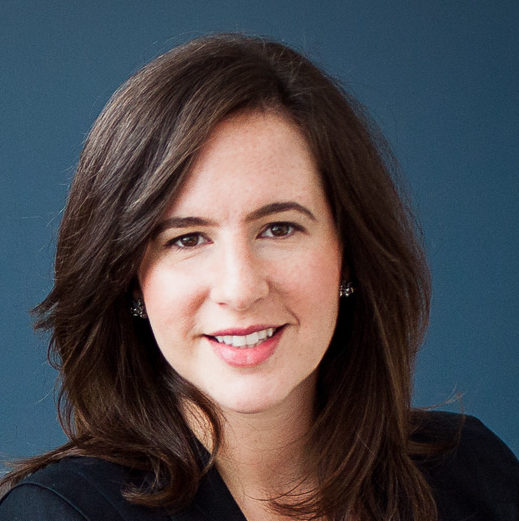Amanda Heyman

Law Firm:
Heyman Legal, MN
- Practices trademark law, food business law, and consults on sustainable and organic farm and food law
- Licensed to practice in Minnesota
- Represents farmers and food entrepreneurs and consults with food-related institutions
Amanda says:
“Don’t wait until disaster strikes to get your legal ducks in a row. It takes just a little time and investment up front to save a whole heck of a lot of trouble down the road.”
Amanda’s Background
Amanda started her career in food law as a staff attorney at Farmers’ Legal Action Group (FLAG), a national nonprofit law firm in St. Paul, Minnesota, that works to help family farmers succeed. Working with farmers wasn’t an obvious step on her career path, though. Amanda was a journalism major at the University of Wisconsin-Madison and worked as a city hall beat reporter in New Mexico and at a news-based tech startup in Boston, Massachusetts, before applying to law schools. “I covered local government and could write story after story about the problems there, but nothing really changed unless someone got sued,” Amanda says. “So I thought, well, if I really want to make a difference maybe I need to go to law school.”
Amanda initially intended to be an environmental lawyer, but after attending the University of Michigan Law School eventually realized that food law (sitting at the intersection of social justice, civil rights, health, and the environment) was a perfect fit. After clerking for two federal judges and spending two years working with family farmers at FLAG, in 2013 Amanda co-founded one of the first law firms in the country specifically dedicated to sustainable food and farming. The firm’s tagline was “Lawyers for Good Food.” “We sat down with as many farmers and food entrepreneurs as we could and really listened to what their needs were,” Amanda says. “And then we tailored our law practice around those needs. The top two needs were getting trademark protection for their brands, and getting corporate entities set up and contracts squared away with vendors, co-packers, etc.”
Educating Farmers & Food Entrepreneurs
Additionally, Amanda has focused on providing farmers and food entrepreneurs with the information and tools they need to grow strong businesses. She started by creating a “Good Food Law Workshop” series, and is currently working to get a project called Foodblazer off the ground. Amanda says Foodblazer will be an online accelerator for food entrepreneurs; her vision is to provide affordable, actionable tools and education around all aspects of building a food business, including finances, marketing, operations, fundraising—and of course, legal. She has also worked as an international consultant for the United Nations, helping the government and agricultural stakeholders on the African island of Mauritius draft their first organic agriculture law (similar to the USDA National Organic Program regulations in the U.S.).
Amanda currently focuses on helping farmers and food entrepreneurs grow and protect their brands via trademark protection and business education. She is also co-founder and general counsel for Starting 11, a daily fantasy soccer startup. “It might sound weird to be a food lawyer and a sports tech startup founder, but there’s a surprising amount of overlap!” Amanda says with a laugh. “Being an early-stage entrepreneur myself helps me really focus on how to add value, because I understand having a to-do list with a million things on it and wanting to ignore the legal part of the business because it’s not as pressing as, say, getting customers. But don’t wait until disaster strikes to get your legal ducks in a row. It takes just a little time and investment up front to save a whole heck of a lot of trouble down the road.”
The Center for Agriculture and Food Systems is an initiative of Vermont Law School, and this toolkit provides general legal information for educational purposes only. It is not meant to substitute, and should not be relied upon, for legal advice. Each farmer’s circumstances are unique, state laws vary, and the information contained herein is specific to the time of publication. Accordingly, for legal advice, please consult an attorney licensed in your state.
